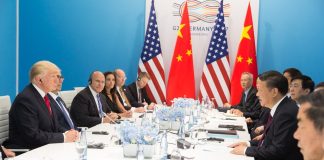The Democratic Republic of the Congo (DRC) is a nation of paradoxes. Rich beyond measure in minerals essential to the modern global economy — cobalt, coltan, and other critical raw materials — it remains mired in poverty, political instability, and endemic corruption.
This week, a delegation of eight MEPs from the European Parliament’s Committee on Development and Subcommittee on Human Rights embarks on a three-day mission to assess EU development programmes in the country. Yet even before they land in Kinshasa and Lubumbashi, the stark realities of Congo’s governance raise profound questions about whether Europe’s good intentions can ever succeed in a system riddled with official misconduct and opaque resource management.
The EU mission, running from 27th to 29th October, is framed around sustainable development, humanitarian action, and the so-called “peace-development nexus.” The delegation will meet local officials, civil society representatives, and beneficiaries of EU programmes, while inspecting projects that touch on agriculture, vocational training, women’s empowerment, and child labour prevention.
They are also tasked with evaluating the Global Gateway initiative, Brussels’ flagship programme aimed at fostering infrastructure and economic development in fragile states.
Yet the EU’s aspirational agenda confronts a stark reality: the DRC remains one of the world’s most corrupt countries. Transparency International consistently ranks it near the bottom of its Corruption Perceptions Index. Government institutions, from provincial authorities to central ministries, are often dominated by networks of patronage.
Public funds frequently vanish, while senior officials extract rents from extractive projects, diverting wealth that might otherwise benefit communities directly affected by mining. For EU policymakers, the question is immediate and troubling: how much of European aid and investment will actually reach the intended beneficiaries, and how much will be siphoned off through entrenched patronage networks?
Minerals are at the heart of this dilemma. The DRC’s critical raw materials are essential to the global tech industry, from smartphones to electric vehicles. Yet oversight of mining contracts and royalties remains weak. Civil society groups in Lubumbashi have long documented opaque licensing deals, where foreign corporations enter agreements with government officials without meaningful transparency, leaving local populations to bear the environmental and social costs.
Despite the EU’s insistence on supporting good governance in extractive industries, these systemic deficiencies remain a serious obstacle. Field visits and high-level meetings can illustrate pockets of progress, but they cannot substitute for structural reform at the national level.
The delegation’s focus on human rights and social cohesion is likewise crucial. Communities surrounding mining sites experience a litany of abuses: forced labour, child exploitation, and the environmental degradation of water sources and farmland. While EU programmes in technical and vocational training or women’s empowerment offer tangible relief, they often operate as islands of good practice in an ocean of dysfunction.
The challenge is that local government authorities, who are supposed to protect and promote these initiatives, can themselves be complicit in or indifferent to abuses. Without mechanisms to hold officials accountable, well-meaning EU interventions risk being undermined before they can achieve systemic change.
The mission also comes at a time when Brussels is eager to secure stable access to critical minerals for European supply chains. The DRC’s cobalt and coltan are indispensable for battery production in the green economy. But securing these resources in a country where transparency and regulatory enforcement are weak raises ethical and practical questions.
How can Europe claim to be promoting sustainable development and human rights while simultaneously relying on a system where officials enrich themselves at the expense of their citizens? There is a growing perception that the global north’s demand for resources inadvertently fuels corruption and inequality in resource-rich states.
There is no denying the EU’s potential role in supporting reform. Civil society organisations, often underfunded and exposed to intimidation, are crucial allies in promoting transparency and holding officials to account. Empowering local communities to monitor resource management, strengthening audit mechanisms, and incentivising compliance with international standards are necessary steps.
Yet these measures require political will from the Congolese government — a commodity that is often in short supply. The irony is stark: the EU may bring funding, technical expertise, and governance frameworks to the table, but it cannot legislate integrity or enforce ethical practices in a political culture that tolerates — even rewards — corruption.
In practical terms, this means that Brussels’ mission must be sceptical as well as supportive. Observing pilot projects in agriculture or women’s empowerment is useful, but the larger question is systemic: will any of these initiatives survive a political and economic structure designed to concentrate wealth among elites?
For MEPs, witnessing successes on the ground should be tempered by awareness that these programmes can be fragile, contingent, and vulnerable to the whims of officials whose incentives are misaligned with those of the communities they purport to serve.
Ultimately, the EU’s challenge in the DRC is emblematic of a broader dilemma in international development: how to foster sustainable progress in a state where governance is compromised and corruption endemic. The MEPs’ mission is an important exercise in oversight and diplomacy, but without accompanying reforms at the national level — strengthened judicial institutions, anti-corruption enforcement, and genuine political accountability — European investments risk becoming a form of benign theatre.
Local populations may gain small victories, but the underlying machinery of corruption will continue to siphon wealth, perpetuating the cycle of inequality and mismanagement that has defined the DRC for decades.
The DRC’s wealth of natural resources is a strategic asset for Europe, but also a test of its commitment to principled engagement. As Brussels’ delegation inspects schools, training centres, and EU-funded initiatives, they should remember that the larger fight is not simply for development, but for integrity: a political culture that respects rule of law, transparency, and human rights.
Until that changes, the Congo will remain both resource-rich and opportunity-poor — a cautionary tale of how even the best-intentioned international assistance can be blunted by endemic corruption.
Main Image: – Own work



